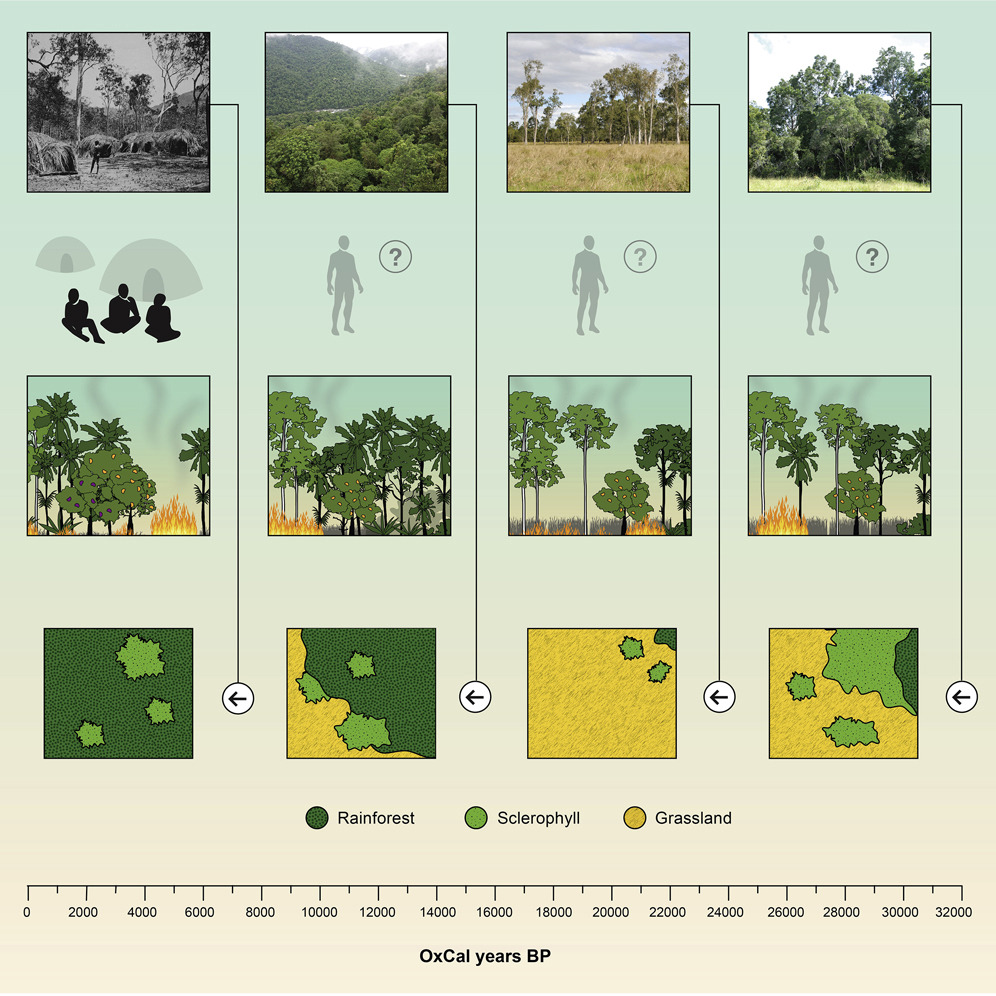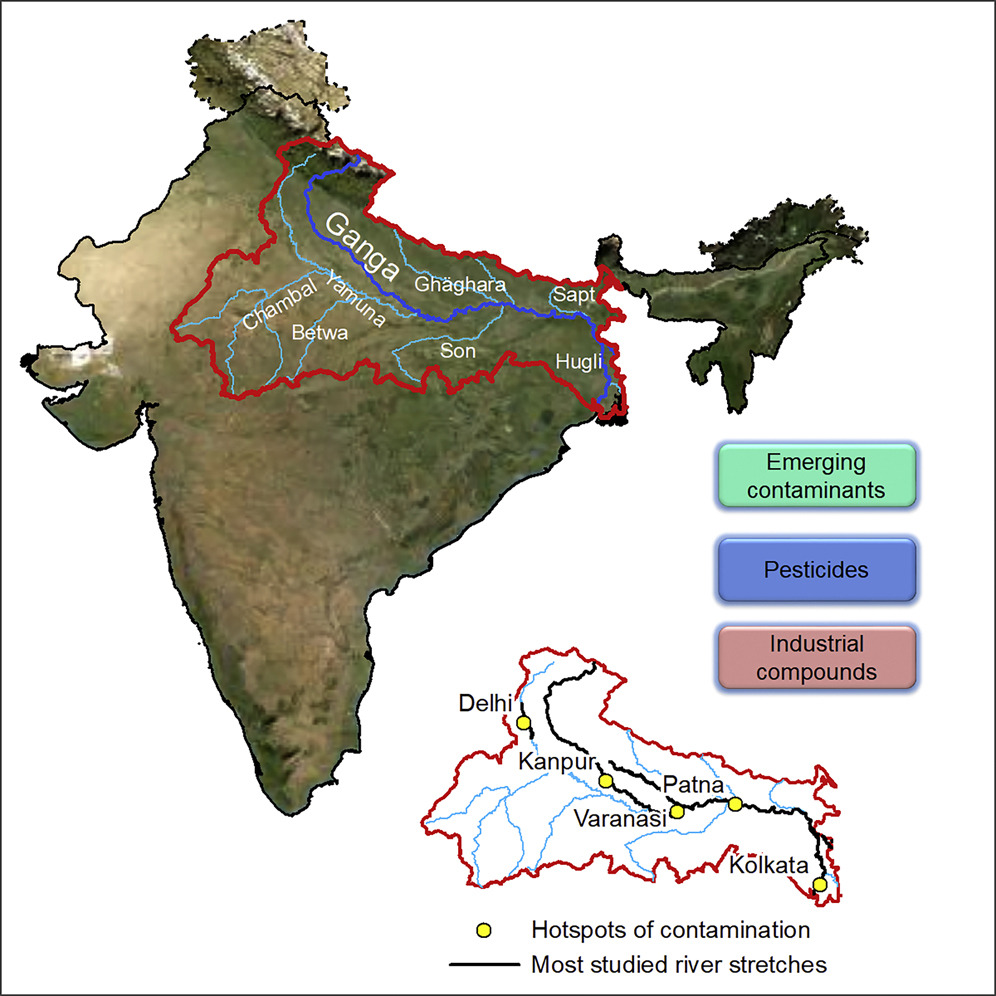Elsevier,
Geography and Sustainability, Volume 2, March 2021
Water yield services on the Qingzang Plateau (QP) have profound impacts on the social and economic development of China as well as other parts of Asia. This study analyzes spatiotemporal variations of water yield on the Qingzang Plateau over the past three decades (1982-2015) and driving factors, one of which is lake changes influenced by glacial meltwater caused by global warming. The findings provide scientific support for formulating regional water resources policy, social and economic development planning and other macro decisions for the QP.
Elsevier,
iScience, Volume 24, 19 March 2021
In this article, we seek to draw upon a variety of multidisciplinary datasets that are yet to be compiled in a peer-reviewed publication, to support growing movements looking to re-cast the forests of the Wet Tropics as cultural landscapes as well as purely “primitive” Gondwanan remnants.
Elsevier, iScience, Volume 24, 19 March 2021
The Ganga basin includes some of the most densely populated areas in the world, in a region characterized by extremely high demographic and economic growth rates. Although anthropogenic pressure in this area is increasing, the pollution status of the Ganga is still poorly studied and understood. In the light of this, we have carried out a systematic literature review of the sources, levels and spatiotemporal distribution of organic pollutants in surface water and sediment of the Ganga basin, including for the first time emerging contaminants (ECs).
Elsevier, One Earth, Volume 4, 19 March 2021
The need to assess major infrastructure performance under a changing climate is widely recognized yet rarely practiced, particularly in rapidly growing African economies. Here, we consider high-stakes investments across the water, energy, and food sectors for two major river basins in a climate transition zone in Africa. We integrate detailed interpretation of observed and modeled climate-system behavior with hydrological modeling and decision-relevant performance metrics.
Elsevier, Current Problems in Diagnostic Radiology, Volume 50, 1 March 2021
Women now comprise half of medical students in Canada yet continue to be underrepresented in general radiology and its subspecialties. The underrepresentation of women in interventional radiology is even more profound. The literature has suggested various factors that might contribute to this gender disparity, including a lack of role models and mentors, exposure during early medical training, and decisions regarding work-life balance.
Elsevier, Journal of Hospitality and Tourism Management, Volume 46, March 2021
Maternity leave policies can have a profound impact on working mothers’ well-being and career advancement. While U.S. maternity leave practices lag behind most developed countries, no study has looked into this issue in the lodging context, leaving an important research gap that needs to be addressed. This research note takes a mixed-methods approach to study maternity leave policies and practices in the U.S. lodging industry via both desk-top research and interviews with human resource managers and working mothers in the lodging industry.
Elsevier, The Lancet Public Health, Volume 6, March 2021
Background: The population of older adults (ie, those aged ≥55 years) in England is becoming increasingly ethnically diverse. Previous reports indicate that ethnic inequalities in health exist among older adults, but information is limited by the paucity of data from small minority ethnic groups. This study aimed to analyse inequalities in health-related quality of life (HRQoL) and five determinants of health in older adults across all ethnic groups in England.
Elsevier, Heliyon, Volume 7, March 2021
Food insecurity caused by climate change has become one of the main issues on the global agenda. Worldwide, the importance of digital tools as a means to enhance adaptive capacity and resilience of smallholder farmers (SHFs) in the face of climate variability has long been recognised. Technology-based systems in agriculture frequently neglect to consider the actual context of use and adoption by SHFs in rural and developing contexts.
Elsevier, Heliyon, Volume 7, March 2021
The National Biogas Policy of Ethiopia introduces plans for the implementation of biogas technologies in rural areas. However, rural households' decision to adopt biogas energy technology has been influenced by different socio-economic and institutional factors. This research was therefore undertaken to determine the actual energy consumption status and factors impacting the adoption of biogas technology by rural households in northwestern Ethiopia. Primary data from 182 randomly chosen households and 15 key informants were obtained.


